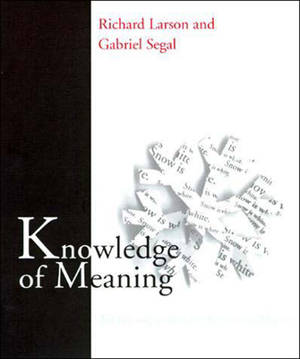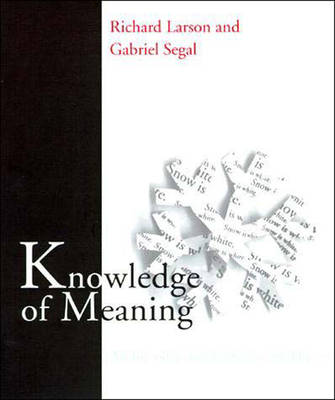
- Retrait gratuit dans votre magasin Club
- 7.000.000 titres dans notre catalogue
- Payer en toute sécurité
- Toujours un magasin près de chez vous
- Retrait gratuit dans votre magasin Club
- 7.000.0000 titres dans notre catalogue
- Payer en toute sécurité
- Toujours un magasin près de chez vous
Description
Linguistic semantics cannot be studied as a stand-alone subject but only as part of cognitive psychology, the authors assert. It is the study of a particular human cognitive competence governing the meanings of words and phrases. Larson and Segal argue that speakers have unconscious knowledge of the semantic rules of their language, and they present concrete, empirically motivated proposals about a formal theory of this competence based on the work of Alfred Tarski and Donald Davidson. The theory is extended to a wide range of constructions occurring in natural language, including predicates, proper nouns, pronouns and demonstratives, quantifiers, definite descriptions, anaphoric expressions, clausal complements, and adverbs.
Knowledge of Meaning gives equal weight to philosophical, empirical, and formal discussions. It addresses not only the empirical issues of linguistic semantics but also its fundamental conceptual questions, including the relation of truth to meaning and the methodology of semantic theorizing. Numerous exercises are included in the book.
Spécifications
Parties prenantes
- Auteur(s) :
- Editeur:
Contenu
- Nombre de pages :
- 662
- Langue:
- Anglais
- Collection :
Caractéristiques
- EAN:
- 9780262621007
- Date de parution :
- 23-09-95
- Format:
- Livre broché
- Format numérique:
- Trade paperback (VS)
- Dimensions :
- 205 mm x 229 mm
- Poids :
- 1156 g

Les avis
Nous publions uniquement les avis qui respectent les conditions requises. Consultez nos conditions pour les avis.






